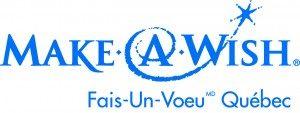
Having a sick child has an impact on the parents’ finances. Between appointments and calls from school or daycare that make you miss work (or even quit), some private services, medication, and other equipment that aren’t fully covered, the burden can become significant and affect your family.
This page gathers all the government resources you may be eligible for as a parent of a child with a complex illness.
IMPORTANT: Not all children and families are eligible for every program. You must check your eligibility with an accountant or tax specialist, and your child’s doctor will determine whether their health condition qualifies them for certain resources. If your child has conditions in addition to a heart condition, the pediatrician is usually the best person to guide you.
If you need support with these steps, you can reach out to the hospital’s social services team and, in some cases, to cardiology nurses (this varies by institution). If you don’t have access to these resources, you can also book an appointment with the Foundation’s social worker, who can guide you to the appropriate resources for your situation.
Medical expenses
Some medical expenses can be claimed on your taxes to receive a partial tax refund (non-refundable). You must keep all receipts for medical expenses to claim them.
Here is the full list of medical expenses you can submit on your taxes, including certain equipment.
Full information is available on the Revenu Québec website.
Medical care in another region
Many of you must travel long distances for appointments. The Foundation can assist you in several situations.
If certain expenses are not covered, you can claim them as medical expenses on your tax return.
Some expenses related to moving or home renovations to adapt your home—if your child has reduced mobility—can also be claimed.
All details on eligible expenses can be found here.
Medication
Is this an issue? What types of medications do children usually use? Are they all covered by the RAMQ?
Your child’s medications are typically covered by the RAMQ (Quebec’s public prescription drug insurance plan) or by your private workplace insurance. (Note: In Quebec, private insurers are required to cover at least all medications that are covered by the RAMQ.)
If your child requires a less common medication (known as an “exception drug“), there may be additional steps your doctor needs to take, and sometimes a delay before the medication can be obtained. These medications should be available in all pharmacies, but they’re not always in stock—so it’s important to plan and refill prescriptions a few days in advance.
If you’re having difficulty accessing one or more medications, you can consider switching pharmacies or using a specialty pharmacy.
In some (rare) cases, certain medications or commercial infant formulas (enriched milk) may also be covered under the RAMQ’s exceptional patient program, or by your private insurer. (Note: In this case, private insurers are not required to cover them, unlike standard medications.)
Starting daycare for a child with a heart condition is often a stressful and complex time for parents.
The first thing to do is to check with your child’s cardiologist to see if there are any contraindications to attending daycare. Some cardiologists may also recommend prioritizing a home-based daycare setting to reduce exposure to germs.
Specialized daycare placement
If your child’s health or developmental condition makes starting daycare challenging, they may be eligible for a specialized daycare placement. These placements are reserved spots in daycare centers (CPEs) based on various criteria, including the child’s health or developmental status, the presence of siblings, or the level of parental stress (among other factors).
To access a specialized daycare placement, you must go through your CLSC (local community health center) or, in some cases, your rehabilitation center.
Home-based daycare
Finding a spot in a family daycare setting for a child with special needs can be quite challenging. Given your child’s specific needs, you can usually go through the regional coordinating office that can support you in your search process. It’s important to specify from the first contact that you wish to speak with the person responsible for children with special needs (usually an educational advisor). Also, make sure you are contacting the correct coordinating office during your call—they will be able to confirm this or provide you with the contact information for the appropriate office based on your postal code.
If you have difficulties working with the coordinating office, don’t hesitate to reach out to a social worker at the hospital, CLSC, or the Foundation’s social worker if you don’t have access to the others.
Daycare integration allowance
There is a grant available to support the integration of children with special needs in CPEs, family daycare settings under a coordinating office, and subsidized private daycares.
The application must be made by the daycare in collaboration with the parents and the follow-up team to identify the necessary adaptive measures. Please note that this allowance is not for regular individual services for the child in daycare and is paid to the daycare, not to the family.
This plan may resemble the Registered Education Savings Plan (RESP) but has important differences, including a higher government contribution rate and different rules regarding withdrawals — when and why they can be made.
If your child is eligible for the Disability Tax Credit (DTC), you can also open a Registered Disability Savings Plan (RDSP). This is especially important if your child may face challenges related to independence or employment in adulthood, but it can also serve various other needs.
You can find details here, but it is necessary to consult a financial advisor to access this type of investment. We recommend ensuring that the advisor is knowledgeable about the RDSP and DTC and is registered with the financial market’s authority. Your bank or credit union also has financial advisors. Discuss your needs and plans with the advisor to make sure the right investment choices are made according to your child’s anticipated needs and health condition.
It is possible for your child to have both an RDSP and a RESP; again, discuss this with a financial advisor.
IMPORTANT NOTE: In most cases, there is no financial reason to forgo opening an RDSP.
Financial advisors usually do not charge fees directly because they are compensated through your investments (if independent) or by an employer (financial institutions like banks and credit unions).
If you have a low income, the government may contribute to your child’s RDSP even if you cannot regularly contribute money yourself.
Disability benefit supplements for children
If your child is eligible for the Disability Tax Credit (DTC), you will also receive a disability benefit for children from the Government of Canada, which is added to your monthly Canada Child Benefit payment (if your family income qualifies). You don’t need to apply for this; it will be automatically paid to you after your DTC is approved, if you are eligible. Note that it is possible to receive up to 11 years of retroactive payments (depending on your child’s health condition and when the application is made).
You can also apply for a disability supplement for children in Quebec. For this application, you will need to complete a form, as well as have it completed by your child’s health professional and their daycare (if applicable) or school.
Home adaptation
If you need home modifications related to your child’s condition, there is a financial support program available. However, please be aware that waiting times can be significant. You can find the details here.
If you are looking for resources for your child, you can consult L’Accompagnateur, which is a directory of resources for parents of children with disabilities.
Financial support for parents
As a parent, you may be eligible for certain programs for caregivers or those close to sick individuals. These programs aim to compensate for financial losses or additional expenses incurred by caregiving parents compared to other parents, so there’s no reason to hesitate to apply. Check with the person preparing your tax return to find out what benefits you may qualify for based on your situation.
On your tax return, you might claim:
- Amount for dependents
- Canada Caregiver Credit
- Caregiver Tax Credit (if your child is over 18 years old)
- Caregiver benefits (including benefits for parents or relatives of a seriously ill person, and for those providing care to someone at high risk of death in the coming weeks or at end of life)
The Caregiver Support Program is also a resource for all caregivers; you can visit their website for more information.
Home care assistance
Taking care of the home can become a challenge, especially during hospital stays with all the back-and-forth, frequent appointments, or simply when caring for your child requires a lot of your time.
You may be eligible for financial assistance to help pay for someone to assist you at home (with cleaning, laundry, and meal preparation).
You can find program details here, including a calculator. It is helpful to have a recommendation from a healthcare professional for this program; you can discuss this with your care team or a social worker at the hospital or CLSC.
In every region of Quebec, there are community organizations dedicated to supporting families. Some offer specific services for parents of children with special needs, while others do not, but you will always be welcome to break isolation and receive support.
Low income work supplements
If you experience a decrease in income because you are now working part-time, have left your job, or are self-employed to allow for more flexible scheduling, you may be eligible for this tax credit.
You can find the details of the Quebec program here.
And the details of the Canadian program here.
Housing subsidy
If your family lives on a low income and you are renters, you may be eligible for a housing allowance, which is a monthly payment to help you pay your rent.
All details about eligibility and how to apply for the allowance can be found here.
Miscellaneous resources
For any other material or financial support needs (clothing, food baskets, budget assistance, microcredit, etc.), you can contact the family organization in your neighborhood, which will be able to guide you.
Various scholarships and resources are available for young people with disabilities, impairments, or disabilities who are pursuing post-secondary education.
Credit for intergenerational housing
If your child’s health or level of independence does not allow them to live completely on their own and you decide to convert your home into an intergenerational dwelling, you may be eligible for a tax credit.
Chomeownership assistance program
Allows you to use your RRSPs to buy or build an eligible home for a person eligible for the Disability Tax Credit (DTC). Full details are available here. (insérer lien)
Employment
If your child has employment limitations, they may be able to benefit from support provided by an employment integration organization. You can find one in your region here.
There is also a subsidy program to facilitate this integration. You can find information about it here. (insérer lien)
CAP 18
A website with information to help prepare the transition to adulthood for young people with special needs who may not be fully independent at this stage of life.
Pense à tout
A tool developed, among others, by the En Cœur Foundation (insérer lien) to help young people manage their medical follow-ups.
Although this is a reality everyone would like to avoid, children with heart conditions have a higher risk of death and may face one or more high-risk periods in their lives. If needed, this section brings together resources and information available to you.
Compassionate care benefit
If your child is at the end of life or at significant risk of death in the coming weeks or months, you may be eligible for the Employment Insurance Compassionate Care Benefit
Child benefits
In the event of a child’s death, Quebec family benefits are extended for 3 months (starting in July 2025, the duration will be extended to 12 months according to a recent announcement).
Full details available here (see the section Family Situation / Child under 18).
Bereavement support
The Monbourquette Foundation offers a list of grief support resources.
Français
- Il état une fois le cathétérisme cardiaque (Filiale de Cardiologie Pédiatrique et Congénitale de la Société Française de Cardiologie)
- Patients et familles (L’Hôpital de Montréal pour enfants)
- Le cathétérisme cardiaque (L’Hôpital de Montréal pour enfants)
- Le souffle cardiaque (L’Hôpital de Montréal pour enfants)
- Service de cardiologie pédiatrique (Cliniques universitaires Saint-Luc)
- Fédération française de cardiologie
- Association nationale des cardiaques congénitaux (France)
- Fondation suisse de cardiologie
- Heart and Coeur – Cardiopathies congénitales
- CardioNews : le site de la cardiologie libérale
- Fondation des maladies du cœur et de l’AVC du Canada
- Institut de cardiologie de Montréal
English
- Children’s Heart Society
- Congenital Heart Information Network
- Children’s Cardiomyopathy Foundation
- Kawasaki Disease Foundation
- Montreal Heart Institute
- Heartkids Australia
Autres ressources
- Jovia : l’art qui fait du bien
- Make-A-Wish / Fais-Un-Vœu Québec
- La Fondation Rêves d’Enfants
- YOOPA
- Centre de répit Philou pour enfants handicapés
- Viomax : physical activities for people with physical disabilities
- Bayshore : home care
- Canadian Congenital Heart Alliance



